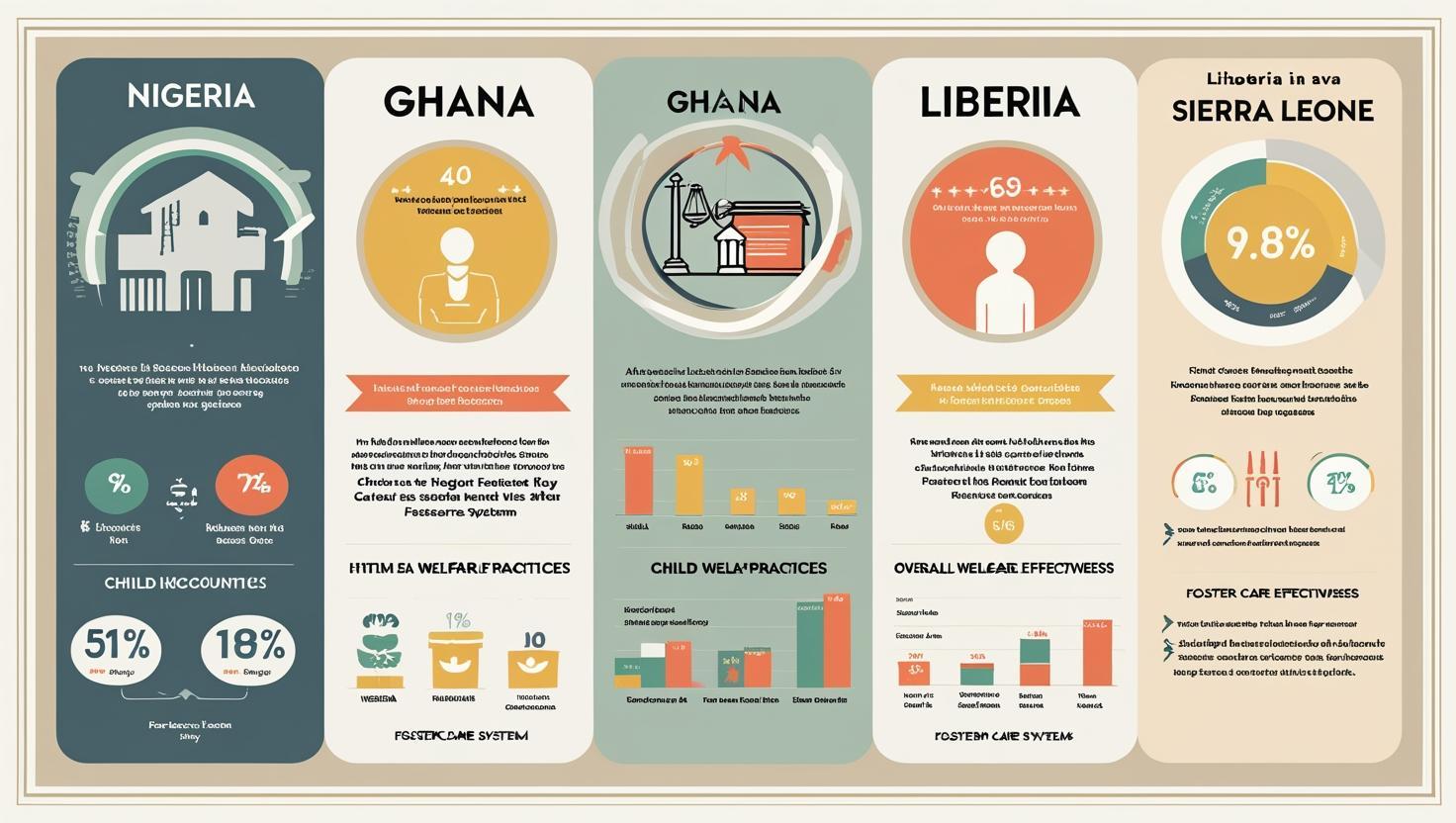Foster care is a critical pillar of child protection, providing safe and nurturing environments for children who cannot live with their biological families.
Across West Africa, the approach to foster care varies widely, shaped by legal frameworks, cultural practices, and the availability of institutional resources.
Countries such as Nigeria, Ghana, Liberia, and Sierra Leone share some similarities but also have unique challenges and opportunities in safeguarding the well-being of vulnerable children.
Nigeria: Balancing Formal Laws and Informal Practices
Nigeria’s Child Rights Act (2003) provides a robust legal framework for child protection, including provisions for foster care. The Act enshrines the principle that the best interests of the child must always be prioritized and aligns with international standards such as the UN Convention on the Rights of the Child.
Despite this strong legal foundation, implementation remains uneven across Nigeria’s 36 states. Many children are still placed in institutional care due to gaps in enforcement, limited funding, and a shortage of trained social workers.
Culturally, informal fostering is widespread. Extended family networks often step in to care for children, reflecting the communal values deeply ingrained in Nigerian society. While this informal system can be highly supportive, it sometimes lacks oversight, leaving children vulnerable to neglect or abuse.
Opportunities for Improvement:
• Strengthening community-based child protection initiatives.
• Expanding training programs for social workers and foster caregivers.
• Raising awareness about formal foster care programs to complement traditional practices.
Ghana: Emphasizing Family-Based Care
Ghana’s Children’s Act (1998) and Juvenile Justice Act (2003) provide the legal framework for child welfare and alternative care. The laws advocate for family-based solutions and emphasize the rights of children to grow in nurturing, supportive environments.
In practice, most foster care in Ghana is informal, with children often sent to relatives or trusted community members for education, financial support, or protection. While these arrangements work in many cases, they are largely unregulated, which can compromise the quality of care.
Challenges:
• Limited formal foster care infrastructure.
• Resource constraints in child protection agencies.
• Lack of public awareness about children’s rights and formal care options.
Opportunities:
• Developing policies to support and regulate formal foster care programs.
• Conducting community awareness campaigns to educate families about child protection.
• Strengthening monitoring systems to ensure safe and supportive placements.
Liberia: Rebuilding Post-Conflict Care Systems
Liberia’s foster care system is shaped by its post-conflict context. The Children’s Law (2011) provides for alternative care options, including foster care, aligning with international child protection standards.
Many children in Liberia live with extended family members through informal fostering arrangements, often due to economic hardships or the lingering effects of the civil war. While culturally accepted, these arrangements are sometimes unsupported by formal structures, leaving gaps in monitoring and accountability.
Challenges:
• Weak institutional capacity to implement foster care programs effectively.
• Limited funding and trained personnel for child welfare services.
• High numbers of orphaned and vulnerable children due to past conflicts.
Opportunities:
• Strengthening child protection institutions.
• Promoting community-based approaches to foster care that respect cultural norms.
• Partnering with NGOs and international organizations to scale impact.
Sierra Leone: Legal Frameworks Amid Post-Conflict Recovery
Sierra Leone’s Children’s Rights Act (2007) establishes legal provisions for alternative care and emphasizes the best interests of children. Like Liberia, the country is recovering from the effects of civil conflict, which has left many children without parental care.
Informal fostering remains the primary mechanism for providing alternative care, with children often placed with relatives or trusted community members. While culturally appropriate, the lack of formal oversight can create vulnerabilities, including neglect or exploitation.
Challenges:
• Gaps in enforcement and monitoring of foster care arrangements.
• Limited resources for social workers and child welfare services.
• High demand for foster care due to post-conflict orphanhood.
Opportunities:
• Strengthening implementation of existing child protection laws.
• Training social workers and foster families to provide safe, supportive care.
• Engaging communities in monitoring and supporting foster care programs.
Comparative Overview
• Informal fostering dominates in all four countries, reflecting strong community and family networks.
• Legal frameworks are evolving, but gaps in enforcement, monitoring, and resources remain a major challenge.
• Institutional care is often over-relied upon, despite evidence that family-based solutions better support children’s development.
• Opportunities for improvement include strengthening community-based systems, capacity-building for social workers, public awareness campaigns, and policy enforcement.
Foster care systems across West Africa reflect a complex interplay of law, culture, and resources.
While informal arrangements provide a vital safety net, formalizing and supporting these systems is essential to ensure the safety, well-being, and development of children.
By addressing gaps in enforcement, monitoring, and professional capacity, West African countries can create robust foster care systems that balance cultural practices with global child protection standards.
Supporting and investing in foster care not only protects vulnerable children but also strengthens families, communities, and the future of the region.





